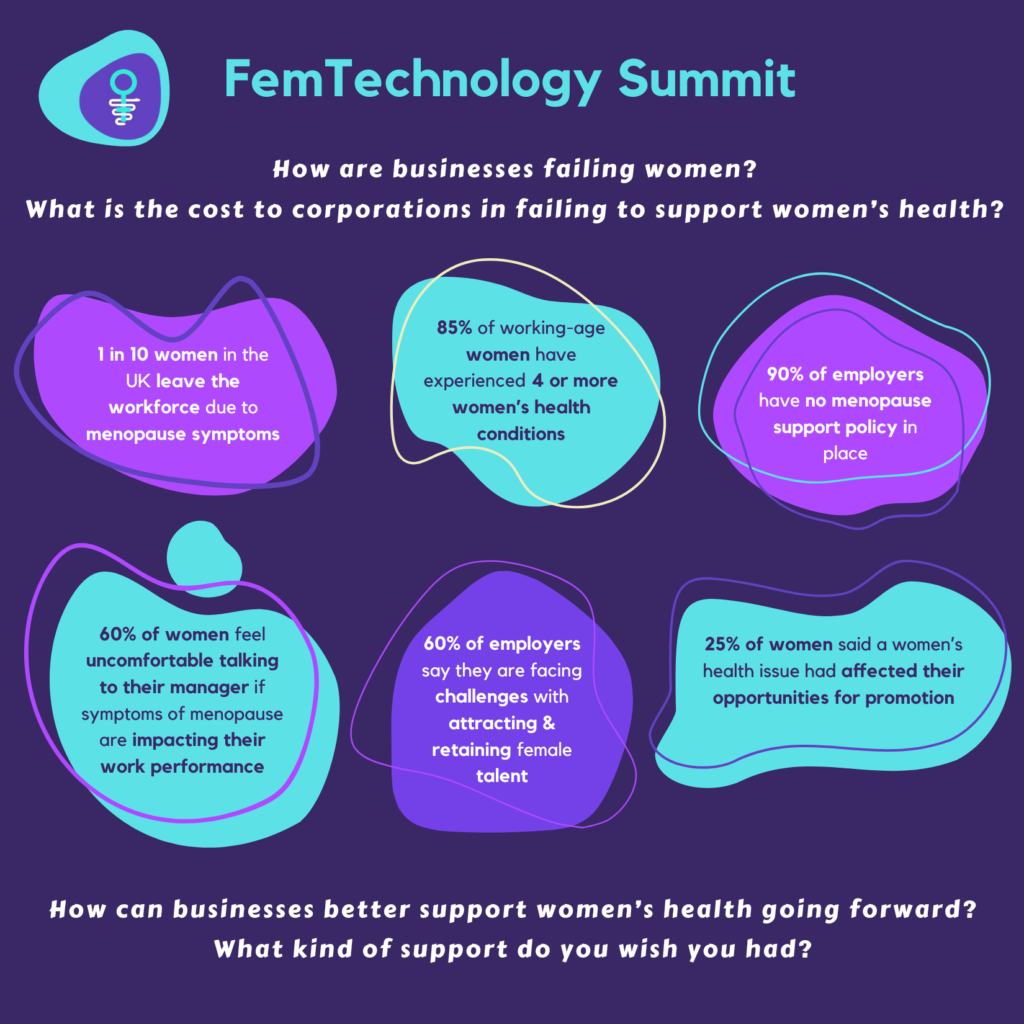
For every female director who is promoted, two women at the same level of seniority choose to quit. This exodus of female leaders is partly due to the persistent pay gap between men and women, but also to companies’ failure to deliver the cultural elements of work that are critically important to women.
For every female director who is promoted, two women at the same level of seniority choose to quit. This exodus of female leaders is partly due to the persistent pay gap between men and women, but also to companies’ failure to deliver the cultural elements of work that are critically important to women.
The absence of such cultural elements necessary for a healthy workplace can lead to sexual bias, discrimination, or gender-related exclusion in the workplace.
Let’s take a look at some numbers….
- 1 in 10 women in the UK leave the workforce due to menopause symptoms
- 85% of working age women have experienced 4 or more women’s health conditions
- 95% of employers have no menopause support policy in place
- 60% of women feel uncomfortable talking to their manager if symptoms of menopause are impacting their work performance
- 60% of employers say they are facing challenges with attracting and retaining female talent
- 25% of women said a women’s health issue had affected their opportunities for promotion
Confronted with these numbers it becomes obvious that we should prioritize incorporating FemTech solutions and disease areas to make women feel comfortable discussing these sensitive issues with their bosses.
Or in the words of Alan Price (CEO at BrightHR, responsible for the global rollout of HR tech supporting over 44,000 organizations): “We need to do better. Having an open and supportive work environment is a good place to start, a place where conversations around sensitive topics are encouraged and normalized and nobody is made to feel unwanted. It’s crucial that managers lead by example. To do this effectively, we need to educate ourselves. The more knowledgeable we are, the better we can listen and be confident discussing the support available” –
The Business Case for Women’s Health Solutions Workshop
At this year’s FemTechnology Summit, we will be shedding light on the business case for women’s health solutions.
 The workshop is facilitated by Anula Jayasuriya, partner at DigitalDx Ventures. This majority woman-owned impact fund comprises a team of successful Silicon Valley digital health investors, medical professionals, and legal professionals. They leverage AI and big data technologies to diagnose major global health issues.
The workshop is facilitated by Anula Jayasuriya, partner at DigitalDx Ventures. This majority woman-owned impact fund comprises a team of successful Silicon Valley digital health investors, medical professionals, and legal professionals. They leverage AI and big data technologies to diagnose major global health issues.
What questions will we be addressing in our workshop?
- We’re calling into question business’ policies, benefits, support and all around culture around women’s health.
- What is the cost to corporations/businesses in failing to support women’s health?
- How can businesses better support women’s health going forward?
- Which femtech solutions & disease areas should be a priority to incorporate?

Itís nearly impossible to find educated people in this particular subject, however, you seem like you know what youíre talking about! Thanks